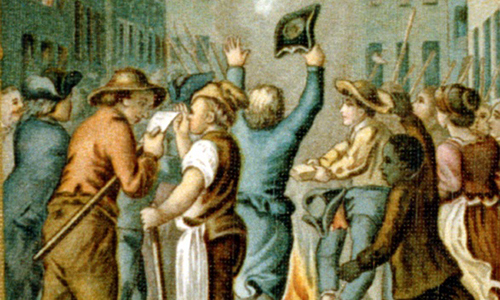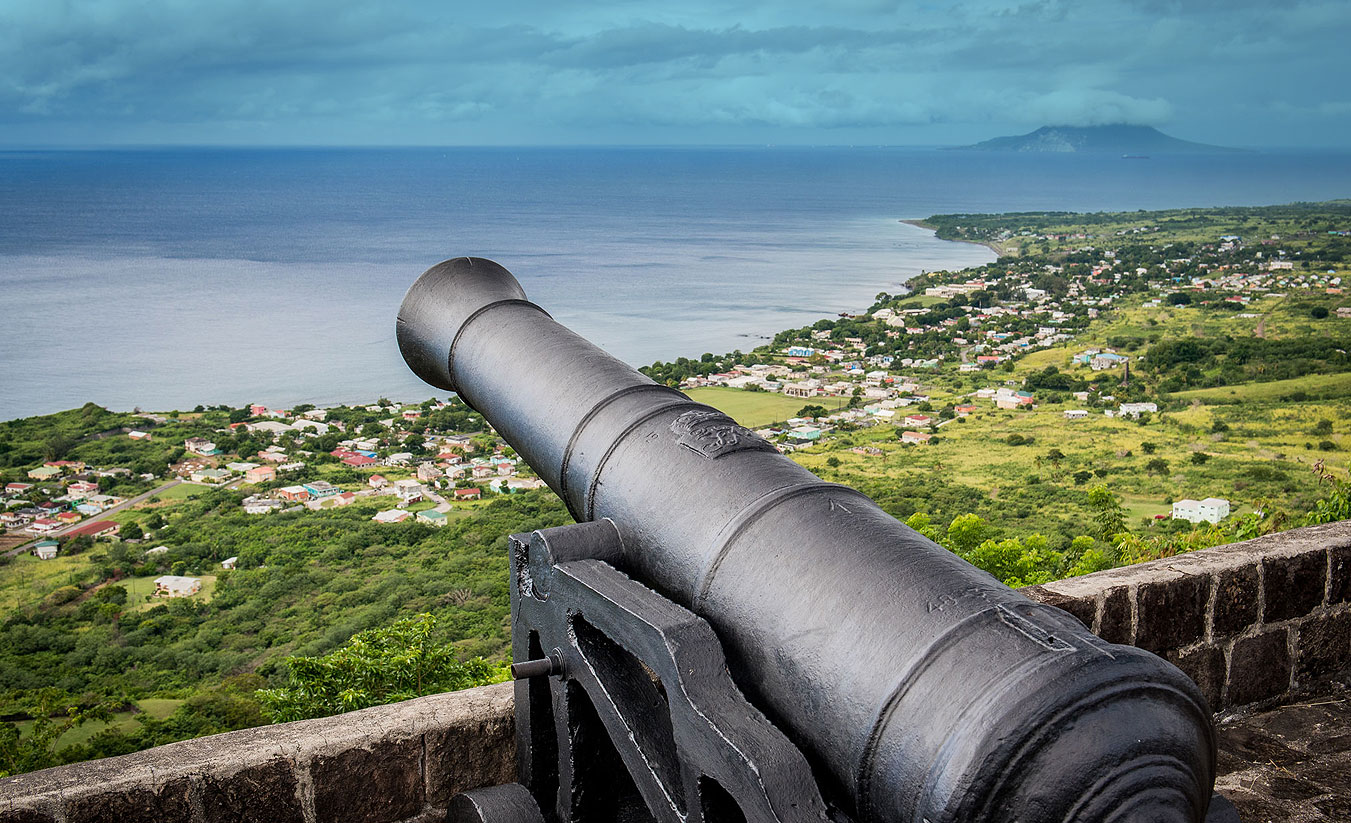
The British victory in the Seven Years War (1756-1763) had been an expensive one and when it was over Britain decided to maintain an armed force in North America to safe guard its new acquisitions. The Stamp Act was introduced to meet this cost. It was a tax on legal documents which would be null and void without it. However the tax fell heavier on the Caribbean colonies and brought no real benefits to the islands where the military presence was actually reduced. Moreover the colonists in the islands insisted that taxes had to be raised through their elected assembly
After night fall on 31st October 1765 a crowd of three to four hundred gathered at Noland’s Tavern and to the beating of a drum marched to the home of John Hopkins. He was a local merchant and deputy stamp distributor in St. Kitts. The boisterous crowd demanded that he turned over the stamp papers and then burnt them in front of his door. Hopkins was then forced to resign his post and to lead to mob to the place where William Tuckett, the Stamp Distributor was staying. The place was about three quarters of a mile out of town. Although he was sick with fever, the crowd put Tuckett on a horse and brought him back to the market, then located in College Street. The Stamp Distributor was roughly handled and almost trampled but for the assistance of some black people who were near by and who helped him get out of town
The mob then went to the office of the island secretary and also to the office of the deputy provost marshal (probably on Church Street) where more stamp paper was burnt. Then they headed to the customs house then located at the bottom of College Street where the collector of customs persuaded them to leave after he declared over and over that he had no stamp paper. The disturbance went on through the night and supporters of the act were verbally abused. Approximately two thousand pounds sterling were destroyed that night.
While this was going on Tuckett fled to Nevis and on the 2nd November he started to distribute stamps. Kittitians followed him there and along with Nevisians who opposed the Stamp Act, they embarked on a trail of destruction which saw two houses burnt. The stamp paper that they got hold of was placed in a navy long boat and the whole set on. fire.
On the 5th of November, instead of burning the effigy of Guy Fawkes, the islanders gathered on the pasture in Basseterre (now Independence Square) and burnt figures representing the Stamp Distributor and his deputy. That evening many assembled for an elegant dinner which closed with the toast “Liberty, Property and No Stamps.” New supplies of stamps were not allowed to land on St. Kitts by those who continued to oppose the Act.
A joint committee of the Council and Assembly was later set up to investigate the riots but it failed to take action as the members of both bodies were in sympathy with the rioters.
The story of the riots in Basseterre, was carried by a number of newspapers in the north American colonies including the Massachusetts Gazette, the Boston Gazette, the Boston Post Boy and was part of an anti tax movement that swept the English colonies in North America.




